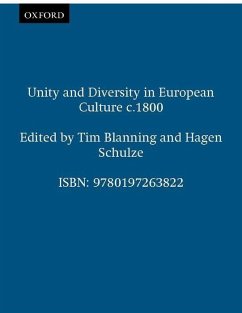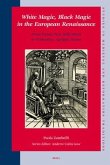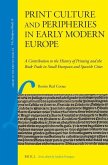This volume brings together two of the most popular, innovative, and controversial fields of historical study: cultural history, and the history of nationalism. Eleven lively chapters discuss the public sphere, music, the visual arts, political culture, literature, the role of the state, and national languages of Europe.
Two of the most popular, innovative and controversial fields of historical study are cultural history and the history of nationalism. This volume brings these two areas together by addressing a central concern of recent research on the cultural history of Europe: the transition from the cosmopolitan culture of the Enlightenment to the self-consciously national cultures of the nineteenth century.
Eleven lively and accessible chapters cover the public sphere, music, the visual arts, political culture, literature, the role of the state, and national languages. Among the many topics discussed are the decline in the degree and importance of patronage by the churches and the nobility; the corresponding expansion in the role played by the anonymous public and the market; the decline of international languages in favour of national vernaculars; the importance of the 'other' in determining a
sense of national identity; and the growing appreciation by the state of the significance of the 'fine arts' as being conducive to social harmony, economic prosperity, and political stability.
Hinweis: Dieser Artikel kann nur an eine deutsche Lieferadresse ausgeliefert werden.
Two of the most popular, innovative and controversial fields of historical study are cultural history and the history of nationalism. This volume brings these two areas together by addressing a central concern of recent research on the cultural history of Europe: the transition from the cosmopolitan culture of the Enlightenment to the self-consciously national cultures of the nineteenth century.
Eleven lively and accessible chapters cover the public sphere, music, the visual arts, political culture, literature, the role of the state, and national languages. Among the many topics discussed are the decline in the degree and importance of patronage by the churches and the nobility; the corresponding expansion in the role played by the anonymous public and the market; the decline of international languages in favour of national vernaculars; the importance of the 'other' in determining a
sense of national identity; and the growing appreciation by the state of the significance of the 'fine arts' as being conducive to social harmony, economic prosperity, and political stability.
Hinweis: Dieser Artikel kann nur an eine deutsche Lieferadresse ausgeliefert werden.








